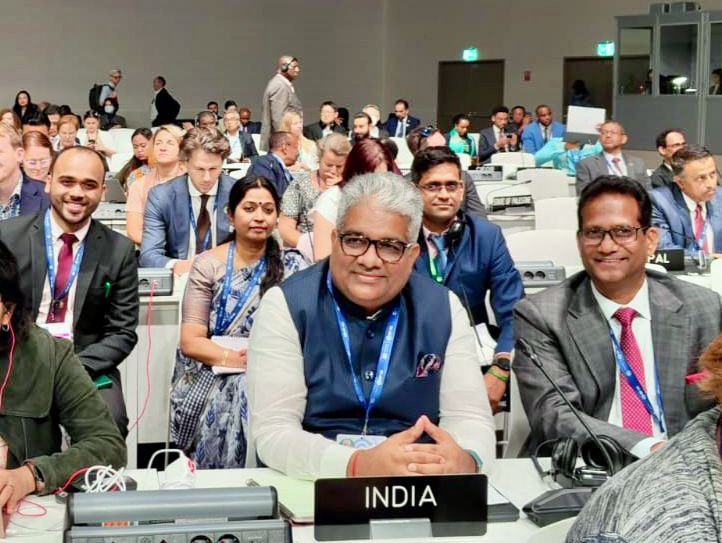India on Monday urged developed nations to raise their climate ambition, deliver “trillions, not billions” in finance and reach net zero far earlier than their current target dates, as nearly 200 countries entered tense final-stage negotiations at the UNFCCC CoP30 in Brazil. Delivering India’s National Statement at the High-Level Segment, Environment Minister Bhupender Yadav urged that the summit be remembered as a “COP of Implementation” and a “CoP of Delivery on Promises,” thanking Brazil for hosting the conference “in the heart of the Amazon,” which he called “a living symbol of our planet’s ecological wealth.”
Yadav said India expects developed nations to honour their commitments at a moment when governments are struggling to agree on how to reinforce the Paris Agreement while acknowledging its gaps. He stressed that credible progress requires new, additional and concessional climate finance at the scale of trillions, not billions, and that climate technologies must be affordable, accessible and free from restrictive intellectual property barriers.
His call came as negotiators dug into difficult issues — including fossil fuel use, climate finance and unilateral trade measures — many of which have been kept off the formal agenda to prevent talks from stalling.
Yadav highlighted India’s own record to underscore what he called credible climate action, noting that the country has reduced its emission intensity by more than 36% since 2005 and that non-fossil sources now account for over half of India’s 256 GW of installed electricity capacity. That, he said, enabled India to achieve its NDC target five years ahead of 2030. He added that India will submit its revised NDCs through 2035 and file its first Biennial Transparency Report on time. He also pointed to India’s global initiatives — including the International Solar Alliance, Global Biofuel Alliance, Nuclear Mission and Green Hydrogen Mission — and said communities across India had planted more than two billion plants in just 16 months in support of the Paris Agreement’s carbon-sink goals.
Meanwhile, negotiators spent the week laying out differences over climate finance, unilateral trade measures and emissions plans that fall short of global warming limits. Norway’s climate minister Andreas Bjelland Eriksen said it was essential to discuss “how we close the gap going forward.” Developing countries are pushing for a binding schedule to ensure wealthy nations honour last year’s COP29 pledge to deliver $300 billion in climate finance annually by 2035, a commitment the United States — absent from CoP30 — has previously failed to meet.
Some countries announced new steps: Denmark unveiled a legally binding 82% emissions-cut target by 2035 from 1990 levels, which Danish climate minister Lars Aagaard called the most ambitious of any developed nation and well above the EU’s 66.25%–72.5% commitment. South Korea, which operates the world’s seventh-largest coal fleet, said it would stop building new coal plants and phase out nearly two-thirds of existing ones by 2040, though it did not specify a timeline for the rest. But the fossil-fuel transition in developing economies remains uncertain, with Indonesia warning that delayed funding from wealthy nations threatens its coal phase-out plan.
Reaffirming India’s call for climate equity and global cooperation, Yadav closed his address by urging countries to deliver real outcomes: “Let the next decade be one of implementation, resilience and shared responsibility.”














